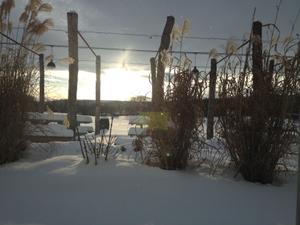Splash Biography
SIMONE HARMATH-DE LEMOS, Ph.D. Student Computational Linguistics
|
Major: Linguistics College/Employer: Cornell Year of Graduation: G |

|
Brief Biographical Sketch:
Simone holds a B.S. in Computer Engineering and an M.A. in Linguistics. She developed Human Computer Interfaces for the Telecommunication industry for several years. Past Classes(Clicking a class title will bring you to the course's section of the corresponding course catalog)H222: What is the Stuff of Language? in Splash Spring 2016 (Apr. 23, 2016)
Do YOU speak a language? Of course you do! We all do, whether it is spoken or sign language. But do you know what is the Stuff of Language? Do you know what your BRAIN has to know in order to speak a language?
It turns out that human language is among the most complex systems we know of, but we rarely thin about what makes a Language. What are the blocks of language? Can all sounds be language sounds? How are sounds organized in your brain? How do you make words and sentences? Why do we have ACCENTS? What happens when what you see does not match what you hear? Can you think without using language?
In this highly interactive class you will be able to explore these questions, see FMRIs of someone speaking, hear unexpected sounds of language, understand what the brain does when there is a mismatch between audio and visual signals, and much more!
H223: The Life of a Language in Splash Spring 2016 (Apr. 23, 2016)
Did you know that languages, similar to human beings, have "a life"? But, WAIT: what is HUMAN LANGUAGE, anyway? Do animals and computers speak? Is writing also language? Are language and thought the same thing?
During this fun and interactive course, we will explore questions such as "what is a language" and "how many languages are there"? We will talk about how languages are born, evolve, and, yes, also die. We will see how both the human brain and social interactions help to shape what we call language. We will learn that languages can be revived, we will talk about animal communication, and we will use software like SIRI and GOOGLE to try and come up with an answer to the matter of whether computers speak.
H191: The Amazing Human Language and The Brain in Splash Fall 2015 (Oct. 24, 2015)
Hello, o, speakers! Yes, if you are reading this, chances are you are a speaker of (at least) a language! You use language everyday, for every activity you can think of, yet, have you ever thought of what you know about your language? Have you ever noticed that you did not have to go to school to learn to speak English (if that is your first language)? Did it ever occur to you that we can think about String Theory and Parallel Universes, but we are still trying to understand how do humans learn language, how does language work? The brain of a 3-year old human child, however, has already figured out most of this. This course will show you how amazing your brain is, how many things your brain has to know in order for you to speak a language. You will see that human Language is Science, it is Math, it is History, it is Geography, Information Theory, and much more! We will try to answer questions like: what do you know? Can computers speak? Can animals speak? How many languages are there? Can I create a new language? Can we think without language?
|
|
